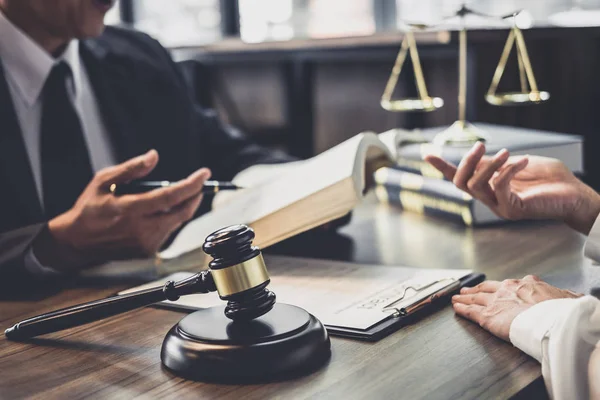Navigating the legal system can be complex, especially when pursuing an appeal in the State of Georgia. Understanding the processes involved is crucial for a successful outcome. Our team of professional appeal lawyers is experienced in representing clients in Georgia’s Appellate Courts and the Georgia Supreme Court, ensuring that every case is meticulously prepared and argued.
Appeal lawyers play a pivotal role in reviewing trial records, pinpointing errors, and crafting persuasive legal arguments. We make it our mission to guide our clients through the intricate appellate process, whether it involves State or Federal Courts. From initial consultation to the final decision, our commitment is to provide thorough representation.
The appeal process is distinct from trial proceedings, requiring specialized knowledge and skills. As experienced appellate attorneys, we understand the nuances of presenting legal arguments and decisions at the United States Supreme Court level if necessary. Our dedication to professionalism drives us to attain the most favorable results for our clients.Learn more about skilled appeal lawyers in Georgia
The Appeals Process in Georgia
In Georgia, appeals can be a critical component of seeking justice, whether in civil or criminal matters. The process involves distinct stages and a thorough navigation of the judicial system, with an emphasis on correcting legal errors. Understanding the differences between criminal and civil appeals is crucial.
Understanding the Appellate System
The appellate courts in Georgia, including the Georgia Court of Appeals and the Supreme Court of Georgia, play a vital role in reviewing legal errors from lower courts. Our system is designed to ensure a fair review, often assessing decisions made by State Appellate Courts below them.
In Georgia, the appeals process does not involve re-examining the factual evidence but focuses on legal errors. The Georgia Court of Appeals typically handles the majority of cases before they might be elevated to the Supreme Court of Georgia. Attorneys specializing in appeals help navigate these complexities effectively.
Stages of a Criminal Appeal
The criminal appeals process in Georgia begins with filing a notice of appeal after a conviction in a U.S. District or State Court. This action sets the stage for our next steps: preparing the appellate brief. The brief outlines grounds for the appeal, focusing on alleged procedural or legal errors in the original trial.
The appeal is then reviewed by a panel of judges which does not include a jury. Oral arguments may be requested, during which appellate attorneys from both sides present their interpretations before the judges. If the Georgia Court of Appeals rules against us, further review by the 11th Circuit or the Supreme Court of Georgia can be sought, though it is largely discretionary.

Civil Appeals: Procedures and Considerations
Civil appeals in Georgia follow different procedures yet similarly require a notice of appeal shortly after the initial ruling. Our focus in civil matters involves legal arguments relating to disputes such as contracts, property, or tort cases. We emphasize procedural correctness and the application of law, crucial aspects to persuade appellate judges.
The procedures generally occur without oral testimony, relying solely on written briefs and previous trial records. It is essential to highlight legal errors or misapplications of law rather than disputes over facts. Our appeal lawyers play a significant role in identifying and articulating these legal nuances to support our position and potentially achieve a favorable outcome in federal and state appellate courts.
Selecting the Right Appellate Lawyer
Choosing an appellate lawyer in Georgia involves evaluating key factors such as their experience, success rate, and client satisfaction. Understanding the profiles of notable lawyers and the availability of free consultations also plays a critical role.
Criteria for Choosing an Appeals Attorney
When selecting an appellate lawyer, we must consider their experience and track record in appellate courts. A lawyer with extensive experience is often more adept at navigating complex legal issues. Look for attorneys who specialize in appellate practice and have a history of success in cases similar to yours.
Another important criterion is the lawyer’s expertise in the specific area of law relevant to your appeal. If it’s a criminal appeal, having a criminal defense attorney with appellate experience can be advantageous. Reviews and testimonials from past clients provide insight into the lawyer’s reliability and quality of legal counsel.
Consult with multiple attorneys before making a decision. This allows us to compare different strategies and fees, ensuring we choose someone who aligns with our specific needs and budget.
Profiles of Notable Appeal Lawyers
In Georgia, several appellate lawyers stand out for their accomplishments and legal acumen. Attorney Jane Doe, known for her high-profile criminal appellate cases, offers extensive experience and a strong record of success. Her profile showcases numerous victories and her reputation among peers is outstanding.
Similarly, Lawyer John Smith has built his career on handling civil appeals, with many of his cases resulting in favorable outcomes for his clients. His ability to craft compelling arguments is frequently highlighted in client testimonials.
Reviewing these profiles helps us understand different appellate approaches and outcomes. Availability of information on past cases and client feedback is crucial in forming an educated choice about whom to hire.
Free Consultations and Legal Representation
Many appellate lawyers in Georgia provide a free consultation, which can be an invaluable opportunity to discuss your case without financial commitment. During this initial meeting, we can assess the lawyer’s communication style, discuss potential strategies, and evaluate their understanding of appellate issues.
Legal representation can vary in cost, so it’s vital to discuss fees and payment structures during the consultation. Ensure that we clearly understand what is included in the representation. Some lawyers may offer flexible arrangements or work on a contingency basis, depending on the case type.
Using these consultations to gauge the lawyer’s capability and commitment helps us make informed decisions, selecting legal representation that best fits our objectives.










